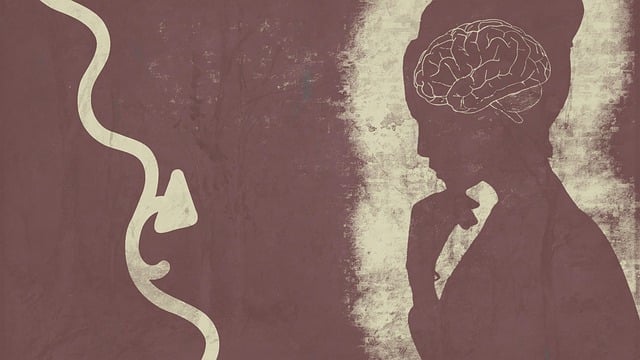Bipolar disorder, characterized by extreme mood swings, requires early intervention through tailored therapy options like cognitive-behavioral therapy (CBT), self-care practices, and crisis intervention. Recognizing symptoms, using assessment tools like SCID, and personalized treatment plans are key to effective management. Therapy equips individuals with coping strategies, stabilizes moods, and builds resilience. Additionally, building a supportive network offers practical assistance, emotional support, and enhanced mood management, contributing to long-term recovery for bipolar disorder.
Mental illness, particularly bipolar disorder, can be a complex and overwhelming journey. This article offers a comprehensive guide through the process of diagnosis and treatment navigation, armed with knowledge as your strongest tool. We explore the nuances of bipolar disorder, its symptoms, and diagnostic criteria. Understanding therapy for bipolar disorder becomes clearer as we navigate various treatment options and highlight the pivotal role therapy plays in managing this condition. Additionally, building a supportive network is crucial for recovery and relapse prevention.
- Understanding Bipolar Disorder: Symptoms and Diagnosis
- Navigating Treatment Options for Optimal Care
- The Role of Therapy in Managing Bipolar Disorder
- Building a Supportive Network for Recovery and Relapse Prevention
Understanding Bipolar Disorder: Symptoms and Diagnosis

Bipolar Disorder is a mental health condition characterized by extreme mood swings, ranging from manic episodes to depressive periods. Recognizing the symptoms is crucial for accurate diagnosis and early intervention. During manic phases, individuals may experience elevated or irritable moods, increased energy levels, rapid speech, and impulsive behaviors. They might take on ambitious projects or engage in risky activities without considering the consequences. Conversely, depressive episodes involve feelings of sadness, hopelessness, and a lack of interest in activities once enjoyed. Changes in sleep patterns, appetite, and concentration are also common indicators.
Diagnosing Bipolar Disorder involves a comprehensive evaluation by qualified healthcare professionals. This typically includes a detailed medical history review, psychological assessments, and sometimes, additional tests to rule out other conditions. A structured interview, such as the Structured Clinical Interview for Diagnostic and Statistical Manual of Mental Disorders (SCID), is often used to assess symptoms and their impact on daily functioning. With proper understanding and recognition of these symptoms, individuals can access effective therapy for Bipolar Disorder, including medication management and psychotherapy, alongside Trauma Support Services, Self-Care Routine Development for Better Mental Health, and exploring Mind Over Matter principles to foster resilience.
Navigating Treatment Options for Optimal Care

Navigating treatment options is a crucial step towards optimal care for individuals dealing with mental health challenges. When it comes to managing conditions like bipolar disorder, a personalized approach is essential. Therapy plays a pivotal role in stabilizing moods, providing coping strategies, and improving overall well-being. Cognitive-behavioral therapy (CBT) has proven effective in treating bipolar disorder by helping individuals identify and change negative thought patterns and behaviors. This form of therapy also equips patients with skills to manage stress and triggers, thereby reducing the frequency and severity of manic or depressive episodes.
Self-care practices are integral to the emotional healing process. Encouraging patients to prioritize rest, exercise, and a balanced diet alongside their treatment plan can significantly impact their mental health journey. Crisis intervention guidance is also vital; training individuals to recognize early warning signs of an episode and providing them with tools to manage crises effectively empowers them to seek help promptly. By combining therapy for bipolar disorder with supportive self-care practices and crisis intervention strategies, individuals can better navigate their treatment plans and lead fulfilling lives.
The Role of Therapy in Managing Bipolar Disorder

Therapy plays a pivotal role in managing Bipolar Disorder, offering individuals essential tools to navigate and stabilize their mental health journey. This process involves various therapeutic approaches tailored to address the unique symptoms associated with the disorder, aiming to improve self-esteem and overall well-being. One widely recognized method is Cognitive Behavioral Therapy (CBT), which helps patients identify and change negative thought patterns and behaviors contributing to mood swings.
By participating in therapy for Bipolar Disorder, individuals can gain valuable insights into their condition, develop coping strategies for anxiety relief, and enhance their mental health education. Therapists guide clients in understanding triggers, recognizing early warning signs, and implementing effective management techniques. This personalized support not only helps stabilize symptoms but also fosters resilience, enabling those affected to lead fulfilling lives while maintaining long-term stability.
Building a Supportive Network for Recovery and Relapse Prevention

Building a supportive network is an integral part of navigating mental health journeys, especially for conditions like bipolar disorder, which requires ongoing management. This network serves as a cornerstone for recovery and relapse prevention, offering practical assistance and emotional support. Friends, family, and peers who understand the condition can provide valuable coping skills development, encouraging healthy habits and mood management strategies. They become a safety net during challenging times, helping individuals stay on track with their therapy for bipolar disorder and enhancing their overall well-being.
Emotional intelligence is another key aspect fostered within this network. Supportive individuals learn to recognize and respect the unique emotional experiences of those with mental health conditions. This fosters an environment where individuals feel understood and empowered to manage their emotions effectively, a crucial component in maintaining stability and preventing relapse. By combining practical tools for mood regulation and emotional support, these networks play a vital role in promoting long-term recovery.
Mental illness, especially bipolar disorder, can be complex to navigate. However, with an understanding of symptoms, diagnosis, and available treatment options, individuals can take control of their mental health. Integrating therapy for bipolar disorder, alongside a supportive network, is crucial for managing symptoms effectively and preventing relapse. This comprehensive approach ensures individuals receive optimal care and foster a healthier, more balanced life.














